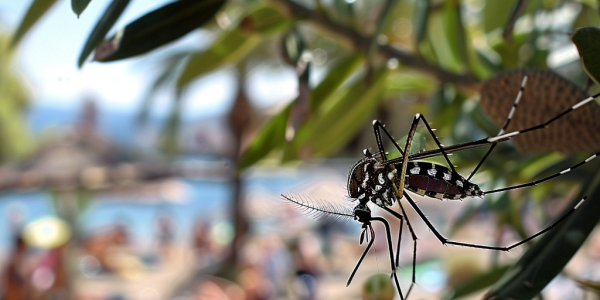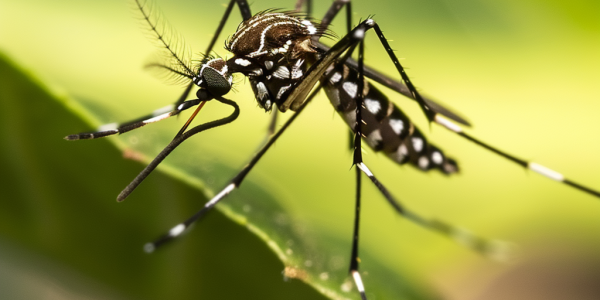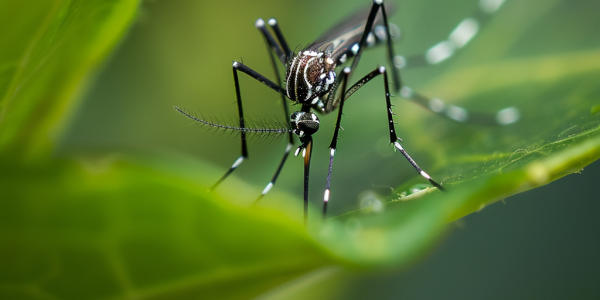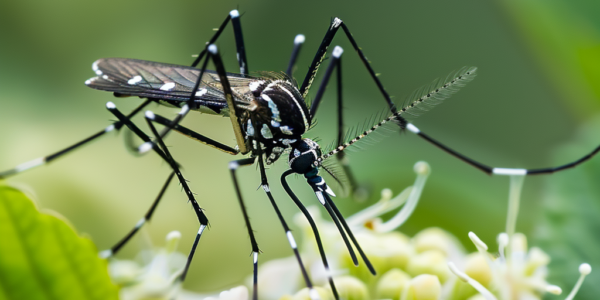Palma Fights Rising Mosquito-Borne Diseases with Sterilization Initiative
As Palma faces soaring summer temperatures, local authorities are combating the rising threat of mosquito-borne diseases, particularly from the invasive tiger mosquito. A groundbreaking project in Valencia aims to breed and sterilize these pests to reduce disease transmission, including dengue fever. With proactive measures and public awareness campaigns, the community is urged to take precautions against mosquito bites, ensuring a safer summer for residents and tourists alike.
Health Risks from Invasive Mosquitoes Loom Over Paris Olympics
As the Paris Olympic Games approach, health experts warn about the rising threat of invasive tiger mosquitoes, known carriers of dengue fever. With the potential for increased transmission during the event, attendees are urged to take preventive measures against mosquito bites. The emergence of these mosquitoes in Europe and the UK highlights the urgent need for awareness and action to protect public health during this global gathering.
Rising Heat Fuels Spread of Mosquito-Borne Diseases in Europe
Rising heat in Europe is leading to a surge in mosquito-borne diseases, with a significant increase in locally acquired cases of dengue reported in the EU/EEA. Imported cases of dengue have also seen a sharp rise, marking the highest reported numbers since surveillance began in 2008. Early reports from 2024 suggest a potential increase in overall cases for the year. ECDC director Andrea Ammon attributes the spread of diseases like dengue to climate change, emphasizing the need for protective measures, vector control, and awareness campaigns in high-risk areas within Europe.
Paris Olympics Could Be Dengue Super-Spread Event
UK public health experts warn that the Paris Olympics could become a Dengue super-spread event, as virus-carrying mosquitos are ‘perfectly adapted’ to the urban environment. With a spike in dengue cases in Europe and over 15 million visitors expected in Paris for the Games, there are fears infections could spread rapidly. Experts highlight the risk of dengue being picked up in Paris and triggering outbreaks elsewhere as people return home carrying the virus.
Rise of Invasive Mosquito Species Linked to Dengue Fever Cases in Europe
The rise in dengue fever cases in Europe is linked to the presence of the invasive tiger mosquito, facilitated by climate change. Authorities warn of the risk of outbreaks and advise preventive measures like eliminating stagnant water and using mosquito repellent. With the spread of diseases like dengue fever and West Nile virus, it is crucial for individuals to protect against mosquito bites in affected regions.
Tiger Mosquitoes Found in Northern France
Health authorities in Normandy have reported the widespread presence of tiger mosquitoes, an invasive species that can carry diseases such as dengue, Zika, and chikungunya. The discovery was made following fieldwork in the Seine-Maritime department, revealing the northward progression of the mosquito in France. This marks the first time the mosquito has settled in this region, making it ubiquitous in mainland France. The presence of Aedes albopictus, commonly known as the Asian tiger mosquito, was initially recorded in France in 2004 and has since spread throughout the country. As of January 1, 2023, the mosquitoes were found in 71 of the country’s 101 departments. Tiger mosquitoes have adapted to the climate in France and northern Europe due to rising temperatures, with winters no longer cold enough to eradicate them. The Normandy health agency has recommended taking practical measures to prevent the breeding of mosquitoes, including the removal of potential breeding sites.






